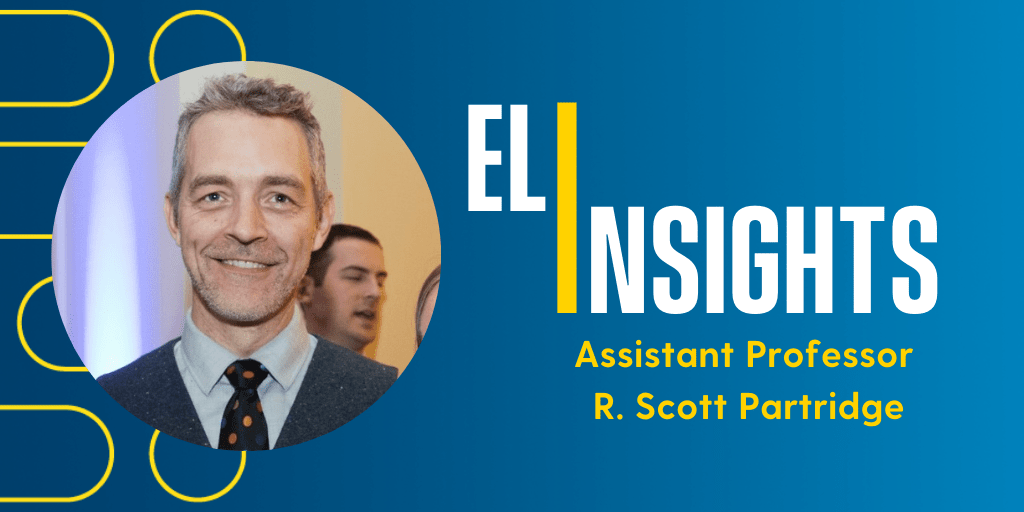Article by R. Scott Partridge, Assistant Professor | December 10, 2020
Over the past year, our Freshman Composition courses have included Accelerate University of Delaware (A-UD) students. The A-UD students are with us a single semester, taking content courses without the typical scaffolded support that students in our conditional admission pathway program, Academic Transitions, receive. While the majority of A-UD students are quite capable in the target language, their understanding of the academic culture of interactive classes tends to be more limited, leading to challenging classes and a more hands-on approach to generating discussions and getting students to share their thoughts. Nevertheless, with a directed, positive approach, A-UD students are capable of making the transition and performing admirably in the emerging class milieu.
We have found that our weekly individual writing conferences are essential in helping A-UD students transition and become more integrated into their classes. The one-on-one attention necessitates active engagement on individual writing issues, allowing the students to revise their writing, hone their ideas, and develop linguistic, academic, and cultural awareness. Following are a couple of recent examples of the work from these meetings.
In a conference early in the semester, “Kim” stated she didn’t need to meet, but when asked to explain the comments she had received and her plan for revision, Kim suggested she needed to “work on grammar” and “improve her ideas.” I pushed back on these claims, pointing out those comments and plans seemed vague and asking for specifics. She soon admitted she hadn’t reviewed the comments carefully. I thanked her for her honesty and pointed out that while she was doing more than satisfactory work, these sessions could help her improve her writing and score if she tried revising again before our meeting instead of waiting until the next due date. Happily, Kim showed up to our next meeting with a list of questions about the feedback she had received. When students negotiate meaning on feedback and revise in advance of a due date, they are more likely to be successful in tackling similar tasks in future academic studies. Given Kim’s new focus, I have to bring my best game to our meetings, knowing my comments will be reviewed and meaningfully addressed in subsequent writings.
In another conference, “Luke” explained that participation in class was difficult because he felt his spoken English was problematic, particularly some grammar issues such as verb form, articles, and prepositions. I thanked him for sharing these concerns and reminded him that written messages in the chat were also a form of participation. Moreover, I suggested he could ask about specific grammar concerns in our conferences allowing us to use these to review his own previous writings. Luke’s ability to identify specific grammar points has led to more productive meetings and is building his self-confidence as he takes a more active role in revising his own writing.
Upon reflection, these interactions are building student self-esteem, allowing them to be more self-directed in revising and thinking about their own work. As the students work to improve their ability to communicate in writing, it is their engagement in the revision process that helps them more successfully align with the nuanced expectations for this new academic environment.

